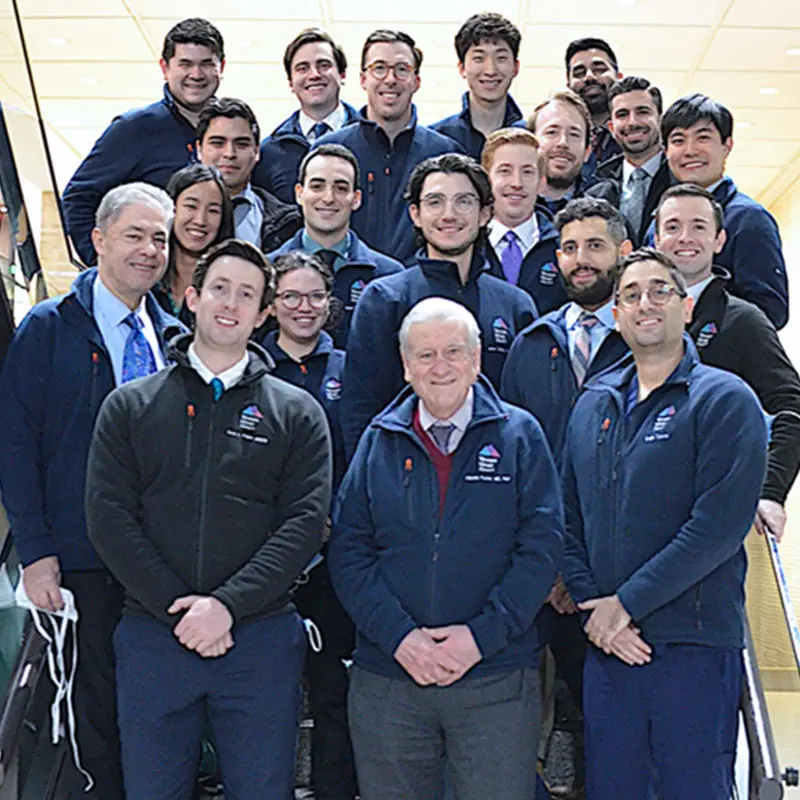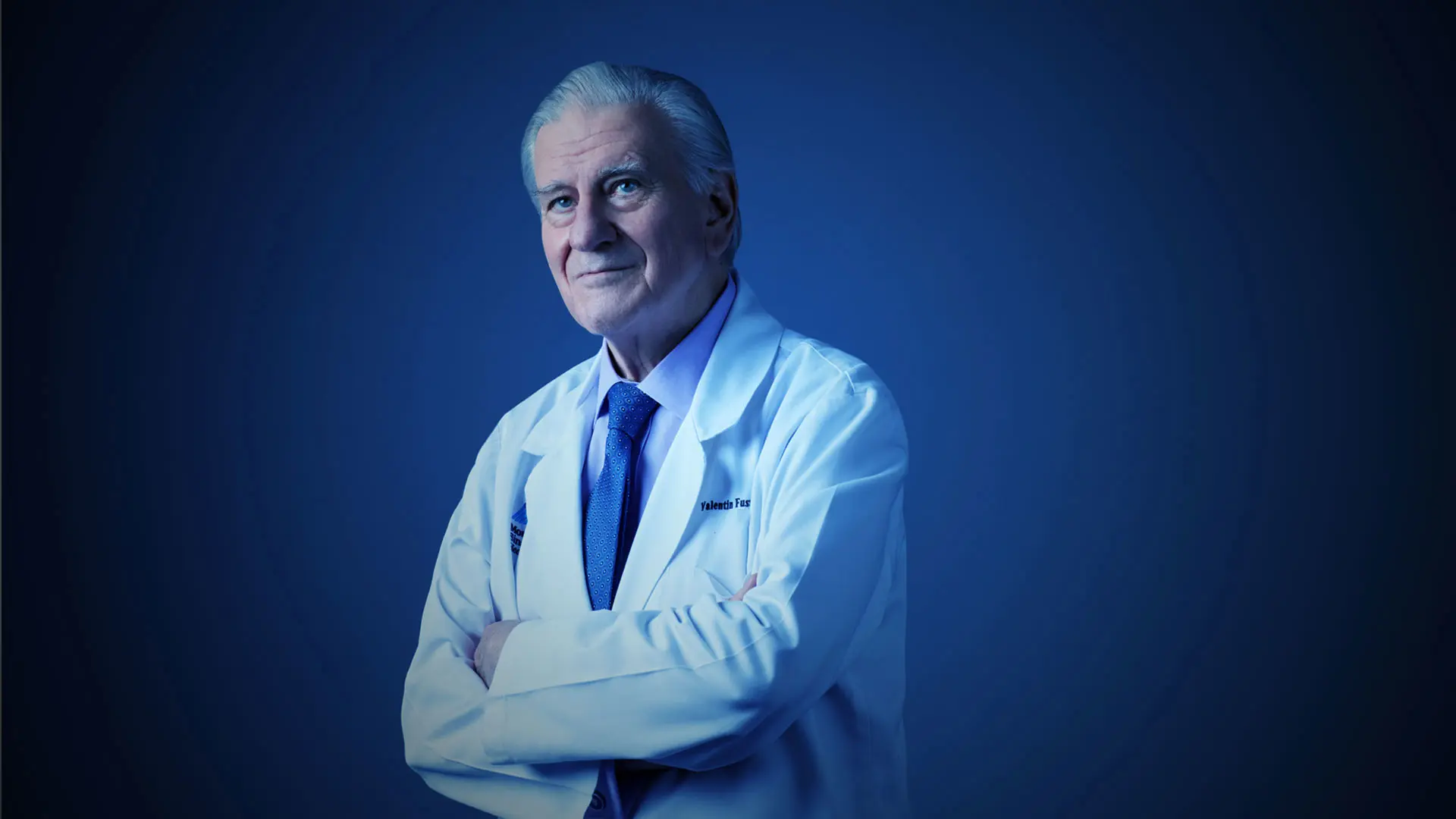The Mount Sinai Hospital was again ranked among the top 6 in the nation for cardiology and cardiac surgery, according to U.S. News & World Report, and ranked No. 4 in the world by Newsweek.
In 2022, Mount Sinai Heart positioned itself for continued success under a new generation of leadership. I was named President of Mount Sinai Heart, continuing to advance clinical care, research, and innovative training. Deepak L. Bhatt, MD, MPH, a world leader in cardiovascular medicine and interventional cardiology, was named Director of Mount Sinai Heart; and Samin K. Sharma, MD, was named to the additional role of Director of the Mount Sinai Cardiovascular Clinical Institute.
In a milestone for Mount Sinai Heart—and for cardiovascular medicine—a three-drug polypill medication was found effective in preventing heart attacks or stroke in people who have previously had a heart attack, reducing cardiovascular mortality by 33 percent in this patient population. These important results were announced simultaneously at the European Society of Cardiology Congress in Barcelona and published in The New England Journal of Medicine.
Our internationally recognized Cardiovascular Training Program, under the guidance of Martin Goldman, MD, attracts outstanding, diverse candidates from the leading institutions in the country, who will become future leaders in cardiovascular medicine.
Robert Rosenson, MD, was the global lead enrolling patients in a trial that found a promising therapy, olpasiran, significantly lowered lipoprotein(a) concentrations in patients with atherosclerotic cardiovascular disease. Our renowned specialists in valve reconstruction developed a unique team approach to treating heart patients with connective tissue disorders such as Marfan syndrome. We conducted a first-in-human study of a next-generation system to treat atrial fibrillation using pulsed field ablation therapy. And a novel app helped improve outcomes for STEMI patients by streamlining communication among teams.
A team led by Roxana Mehran, MD, created the multispecialty Women’s Heart and Vascular Center, with clinics designed to screen, assess, and educate women about their level of individual risk. This initiative is vital, as cardiovascular disease is the No. 1 killer of women—though it has long been understudied and undertreated. Under Amy Kontorovich, MD, PhD, Mount Sinai Heart launched the Center for Inherited Cardiovascular Diseases to advance genomic approaches in the treatment and prevention of heart disease.
Researchers at the Cardiovascular Research Institute, led by Filip Swirski, PhD, advanced the understanding of biological systems to improve overall health and heart health. Their research focused on a wide range of subjects, including left arterial function, pulmonary hypertension, stiffening of the aorta, the effects of space radiation on astronauts, and Dr. Swirski’s study of sleep and immunological health.
We made significant findings in several patient-focused studies: Bivalirudin was safer and more effective than heparin for treating heart attack patients undergoing PCI. For patients with severe ischemia, early revascularization was associated with a more than 30 percent reduction in mortality compared to patients with severe ischemia who were treated with medication. And the FAMILIA trial, focusing on a multiethnic, underserved community in Harlem, found that young non-Hispanic Black adult participants were twice as likely to have atherosclerosis as young Hispanic adults.
The patient is paramount at all of our excellent sites, including The Mount Sinai Hospital, Mount Sinai Morningside, Mount Sinai West, Mount Sinai Queens, Mount Sinai South Nassau, and practices throughout the region. At an individual and a community level, we are bridging the gap from research to results that improve health. To learn more about our accomplishments, please review our 2023 Mount Sinai Heart Specialty Report.
Valentin Fuster, MD, PhD
President of Mount Sinai Heart, and Physician-in-Chief of The Mount Sinai Hospital

Valentin Fuster, MD, PhD, center, and Martin Goldman, MD, second row, left, with the Fellows of the Cardiovascular Training Program at The Mount Sinai Hospital. The renowned program develops future leaders in all aspects of cardiology, with personalized training and mentorship from outstanding leaders in the field.
